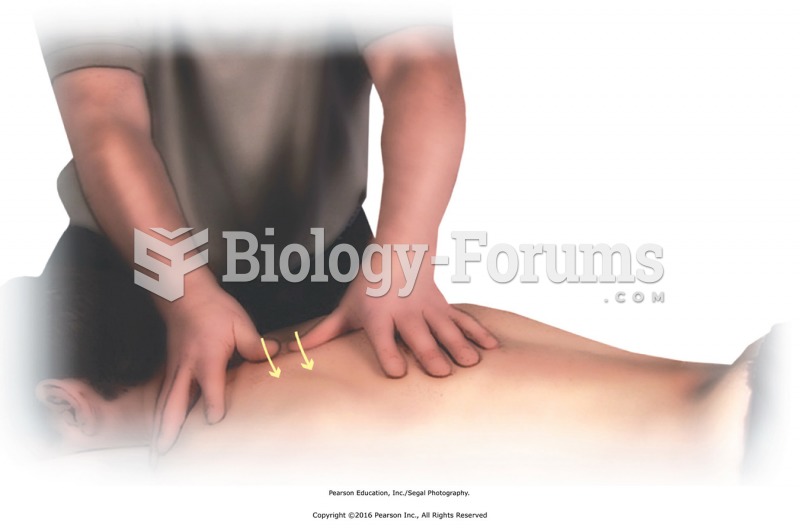|
|
|
When Gabriel Fahrenheit invented the first mercury thermometer, he called "zero degrees" the lowest temperature he was able to attain with a mixture of ice and salt. For the upper point of his scale, he used 96°, which he measured as normal human body temperature (we know it to be 98.6° today because of more accurate thermometers).
The people with the highest levels of LDL are Mexican American males and non-Hispanic black females.
A serious new warning has been established for pregnant women against taking ACE inhibitors during pregnancy. In the study, the risk of major birth defects in children whose mothers took ACE inhibitors during the first trimester was nearly three times higher than in children whose mothers didn't take ACE inhibitors. Physicians can prescribe alternative medications for pregnant women who have symptoms of high blood pressure.
The training of an anesthesiologist typically requires four years of college, 4 years of medical school, 1 year of internship, and 3 years of residency.
Oliver Wendell Holmes is credited with introducing the words "anesthesia" and "anesthetic" into the English language in 1846.
 That politics was always a rough business is shown in this cartoon, which shows Lincoln, assisted by
That politics was always a rough business is shown in this cartoon, which shows Lincoln, assisted by
 Although most gestures are learned, and therefore vary from culture to culture, some gestures that ...
Although most gestures are learned, and therefore vary from culture to culture, some gestures that ...





